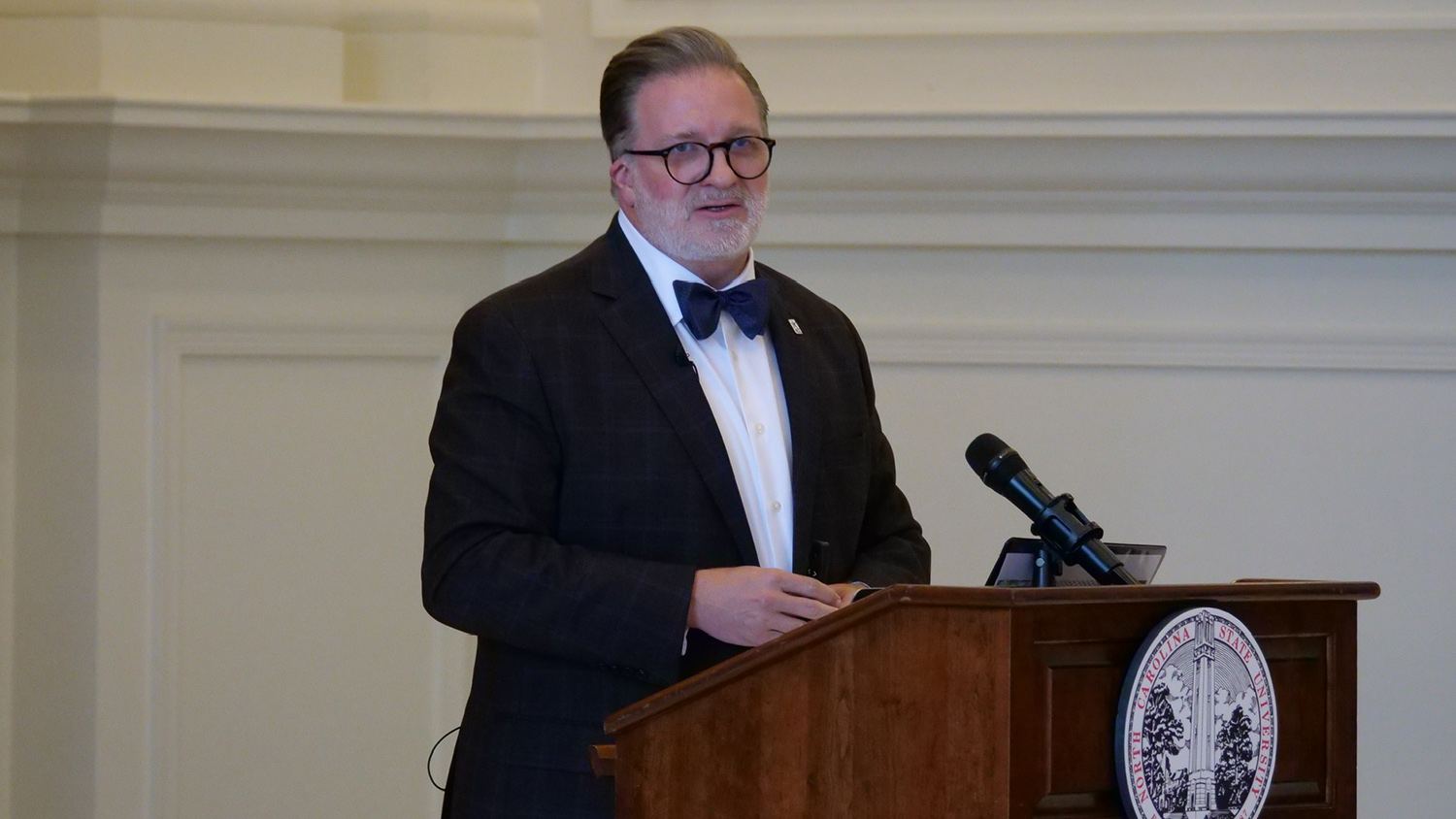Austin Community College District Chancellor Russell Lowery-Hart Shares Advice for ‘Loving Students to Success’ During 2024 Dallas Herring Lecture

Russell Lowery-Hart, chancellor of the Austin Community College District and former president of Amarillo College, has become known as a leader who challenges others to “love students to success.” But, that love, he said, can’t happen at community colleges without data, action plans and transformative change.
“The initiatives often used to implement love will only be impactful, at scale, if the institutional culture on which they are built is responsive, ready and caring. Leading with love requires courage, clarity, planning, intentionality and data,” he said.
Lowery-Hart shared these words during the 2024 Dallas Herring Lecture, hosted by the NC State College of Education’s Belk Center for Community College Leadership and Research on Nov. 19, 2024. This annual gathering was a convening of community college leaders from across the nation and exemplifies how the college and Belk Center leads the way in supporting them.
During his lecture, entitled “Transforming Higher Education: Loving Our Students to Success Through Intentional, Courageous, and Systemic Leadership,” Lowery-Hart shared how he believes love and leadership go hand-in-hand and offered advice on how to create a framework for institutional transformation that goes beyond initiatives and allows community college presidents to lead with love.
Specifically, he shared that community college transformation involves changes to culture, impact and communication.
Changing Culture: Drawing on his own experiences in Austin and Amarillo College, Lowery-Hart shared that changing the culture at any institution involves listening to the students and using that information to identify a theory of change that will help those students graduate and find sustainable employment.
“We learned that if Amarillo College removes a life barrier in an accelerated learning platform within a deep and systemic culture of caring that loves our students to success, then students will complete and graduate with the skills and credentials needed to earn a living wage,” he said.
Changing Impact: In building an institution that can “love students to success,” Lowery-Hart emphasized the importance of effectively using data in narrow, focused ways that give faculty and staff an opportunity to innovate solutions to improve student outcomes. When new solutions are implemented, it’s important to identify what works, implement it at scale and allocate budget for those programs that impact a large percentage of the student population.
“We [often] find things that work, and then do not have the courage to direct resources to them for scale. The most effective institutions creating the greatest outcomes for students have the courage to stop boutique programs and redirect college resources to those initiatives aligned with the theory of change and that can be scaled,” he said.
Changing Communication: In his own leadership, Lowery-Hart abandoned the town hall style of communication, where he was sharing information with large groups of people who had limited opportunities to respond, and instead moved to more intimate conversations with various departments, giving faculty and staff opportunities to share concerns and ideas. He also stressed the importance of transparently sharing information with all employees, not just those in leadership positions.
“In Austin, we have embraced two driving philosophies to our communication plan – radical transparency and radical simplicity,” he said. “Leadership became about listening, engaging and empowering – instead of about decision making.”
- Categories:


